

Lion’s Mane Mushroom Benefits
Mushrooms have served the human race as food and medicine for thousands of years. They are an interesting part of nature, but none beats the Lion’s Mane mushroom. A natural wonder because of its unique appearance and fascinating nutritional properties. It also has an abundance of medicinal potential and easily one of the most sought-after mushrooms in the modern market.
What is Lion’s Mane Mushroom?
Lion’s mane mushroom goes by many names like Monkey’s Head, Satyr Beard, Pom-Pom mushroom, Bearded Tooth or Bearded Hedgehog. All these names refer to a shaggy mushroom that belongs to the fungus group known for their tooth-like and spine-like fruiting bodies.
The fungi grows on hardwood trees in temperate forests throughout the Northern Hemisphere. Lion’s Mane’s roots have been severed for centuries for its nutritional and medicinal benefits and once known as the “Mountain Priest,” because of its crucial role in Asian culture and Traditional Chinese Medicine.
Lion’s Mane is not just an interesting fungus. It has an equally interesting history which includes royalty and Buddhist monks. The fungus was served to royalty and the Buddhist monks cherished its cognitive power. Traditional Chinese Medicine used Lion’s Mane tonic for years while Buddhist monks used powdered Lion’s Mane to assist with focus.
The fungus was notoriously popular in Japan it was dubbed “Yamabushitake” meaning after a sect of Buddhist monks.
Nutrient Composition of Lion’s Mane Mushroom
Lion’s Mane has one of the most diverse nutritional compositions among fungi. It has an exceptional culinary reputation and is widely known for its flavour. It contains substantial amounts of vitamins, protein fibre, mineral and plant compounds.
The fungus is low in calories and saturated fats and provides a great source of beta-glucan polysaccharides that have a positive impact on health. Its composition also includes seven amino acids, eight non-essential amino acids, flavones, alkaloids, phenolic compounds and anthraquinones. In addition, Lion’s Mane mushroom is also packed with minerals like calcium, magnesium, potassium, iron and zinc. Vitamins like B9, B1 and E are also present in the mushroom. Because of this extensive nutritional profile, lion’s mane mushroom products are in high demand.
Benefits of Lion’s Mane
Lion’s Mane’s incredible nutritional profile and benefits make it the most popular and sought-after fungus. Some of the common benefits associated with Lion’s Mane include;
Nutrition
At the top of the benefits of the Lion’s Mane mushroom is its nutritional power. The mushroom contains plenty of everything. It has antioxidants, vitamins and minerals. It also contains a decent amount of potassium and, iron which is vital for various body functions.
Medicinal qualities
Besides its impressive nutritional qualities, most people are attracted to Lion’s Mane because of its medicinal benefits. The fungus has received more attention from scientists and has made appearances in various studies on brain health and immune support.
The fungus is full of antioxidants and antibacterial compounds that help with gut health and digestive issues.
Historically, Lion’s Mane has been used to treat infections, manage diabetes, and heal wounds. The fungus is rich in polysaccharides, most notably beta-glucan, which help with immune support and has demonstrated anti-tumour activity.
Lion’s Mane has multiple other medicinal benefits like;
- Reduces inflammation and oxidative stress – Many modern illnesses like cancers and autoimmune disorders are deep-rooted in chronic inflammation and oxidative stress. Research shows Lion’s Mane contains powerful anti-inflammatory and antioxidant compounds that may help reduce the impact of these illnesses.
- Boosts the immune system – The immune system protects the body from viruses and bacteria, and other disease-causing pathogens. Animal research has shown Lion’s Mane mushroom can boost immunity by increasing the activity of the intestinal immune system, which plays a critical role in protecting the body from pathogens that enter the gut through the mouth and nose.
- Reduces heart disease risk – Obesity is a major risk factor for heart disease. High triglycerides and oxidised cholesterol also contribute to the likelihood of getting blood clots. Lion’s Mane mushroom can improve fat metabolism and lower triglyceride levels. The fungus also contains a compound called Hericenone B which can help reduce the rate of blood clotting and lower the risk of heart attack or stroke.
Cognitive Performance and Health
Lion’s Mane is popularly used as a nootropic or brain enhancer, it has been for years. It is why Buddhist monks used it to help with medication. It is currently being studied for even more cognitive benefits, including its potential to treat Alzheimer’s Disease, among other issues that affect the nervous system and cognitive functions. Here are some other cognitive benefits associated with Lion’s Mane mushrooms;
- Protecting against dementia – The body’s ability to form and develop new connections declines with age, which may explain why mental performance becomes slower in older people Lion’s Mane mushrooms contain erinacines and hericenones which are thought to stimulate brain cell growth which could prevent age-related conditions like dementia.
- Alleviation of symptoms of depression and anxiety – Anxiety and depression are becoming increasingly common in the community. Chronic inflammation can be one of the main causes and studies have shown that Lion’s Mane extract helps regenerate brain cells, improving the activity of the hippocampus which reduces anxiety and depressive behaviour.
There’s no doubt that Lion’s Mane has plenty to offer. From its nutritional value to its health and therapeutic benefits, it’s easy to see why this is one of the most sought-after fungi in the world.
-

-
Low stockOriginal price £25.00 - Original price £139.99Original price £0.00£25.00 - £139.99£25.00 - £139.99Current price £25.00
Earn 312 reward points
Orange County CBDBrought to you straight from the Sunshine State, Orange County's CBD oil combines full-spectrum, premium cannabinoids with natural terpenes to brin...
View full detailsOriginal price £25.00 - Original price £139.99Original price £0.00£25.00 - £139.99£25.00 - £139.99Current price £25.00Earn 312 reward points
-
Low stockOriginal price £19.99 - Original price £100.00Original price £0.00£19.99 - £100.00£19.99 - £100.00Current price £19.99
Earn 250 reward points
CBD by British CannabisIntroducing the new CBD Cannabis Oil from CBD by British Cannabis. This 100% Cannabis oil has been developed to be the best tasting most premium CB...
View full detailsOriginal price £19.99 - Original price £100.00Original price £0.00£19.99 - £100.00£19.99 - £100.00Current price £19.99Earn 250 reward points
-
In stockOriginal price £25.00 - Original price £25.00Original price £0.00£25.00£25.00 - £25.00Current price £25.00
Earn 312 reward points
CBD FXExperience the natural benefits of CBDfx Hemp Tincture, crafted with high-quality, pure hemp-derived CBD and MCT oil for optimum absorption and e...
View full detailsOriginal price £25.00 - Original price £25.00Original price £0.00£25.00£25.00 - £25.00Current price £25.00Earn 312 reward points
-
In stockOriginal price £19.99 - Original price £19.99Original price £0.00£19.99£19.99 - £19.99Current price £19.99
Earn 250 reward points
CBD FXExperience the natural benefits of CBDfx Hemp Tincture, crafted with high-quality, pure hemp-derived CBD and MCT oil for optimum absorption and ef...
View full detailsOriginal price £19.99 - Original price £19.99Original price £0.00£19.99£19.99 - £19.99Current price £19.99Earn 250 reward points
-
Low stockOriginal price £29.99 - Original price £149.99Original price £29.99 - Original price £149.99Original price £29.99£26.99 - £134.99£26.99 - £134.99Current price £26.99
Earn 337 reward points
Naturecan CBDBroad Spectrum 100% Natural Oil By Naturecan CBD is a high quality broad spectrum CBD oil produced from organically grown US hemp manufactured in t...
View full detailsOriginal price £29.99 - Original price £149.99Original price £29.99 - Original price £149.99Original price £29.99£26.99 - £134.99£26.99 - £134.99Current price £26.99Earn 337 reward points
Save up to 10% -
In stockOriginal price £64.99 - Original price £160.00Original price £0.00£64.99 - £160.00£64.99 - £160.00Current price £64.99
Earn 812 reward points
Supreme CBDSupreme CBD full spectrum oil provides the maximum CBD advantages and is available in three strong variants: 1500mg, 3000mg, and 6000mg. This full ...
View full detailsOriginal price £64.99 - Original price £160.00Original price £0.00£64.99 - £160.00£64.99 - £160.00Current price £64.99Earn 812 reward points










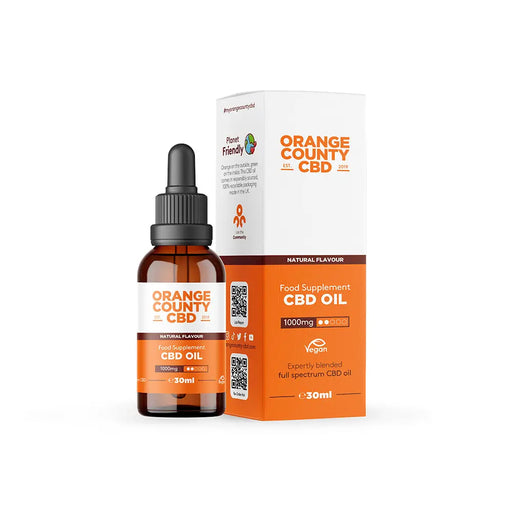
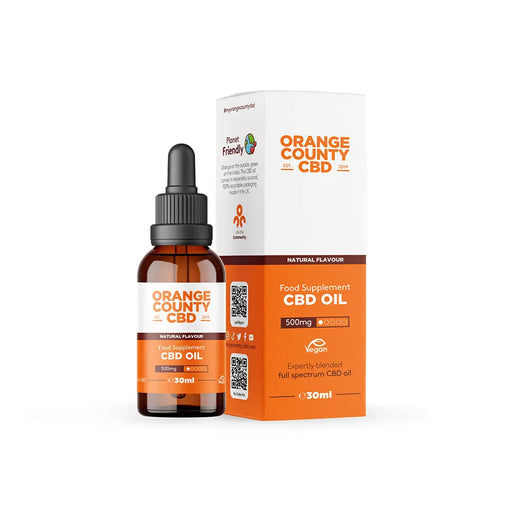
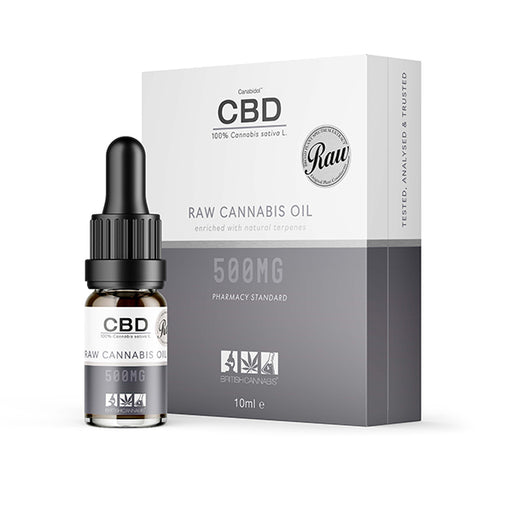
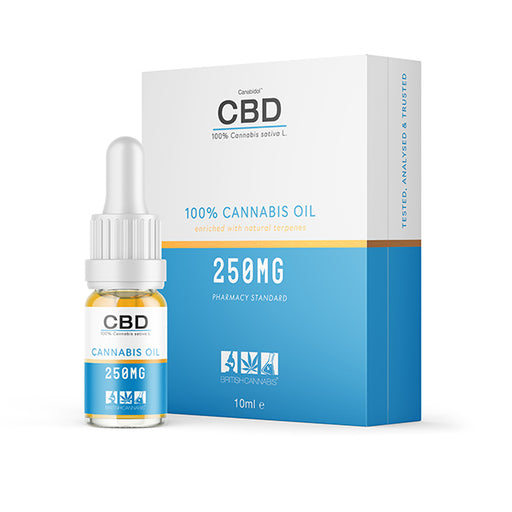


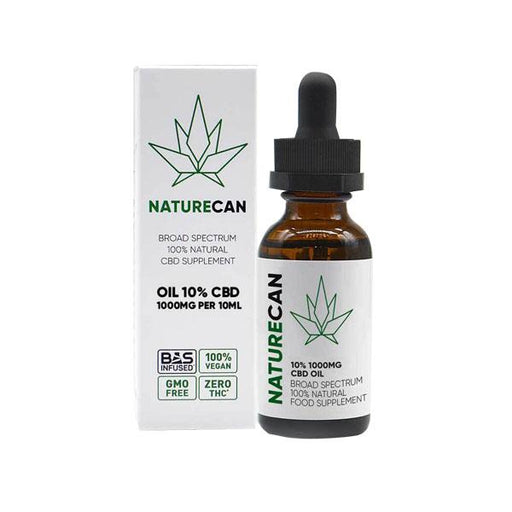
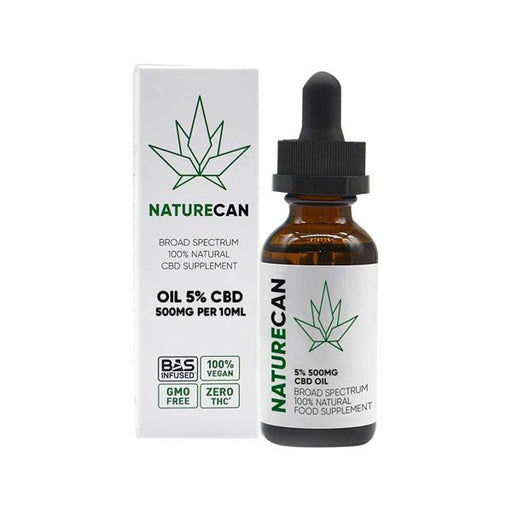


Leave a comment